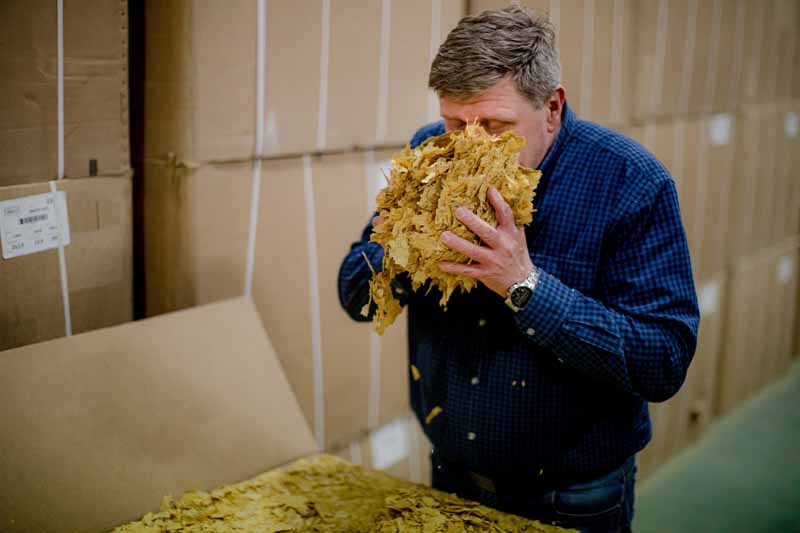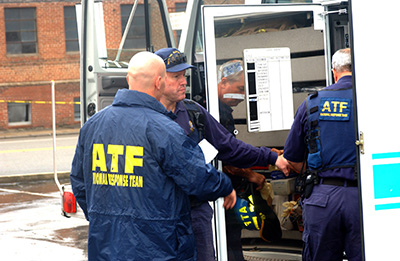
Lukowa Tobacco has specialized in shisha tobacco from Poland.
By Stefanie Rossel

Originally a centuries-old habit in the Middle East, smoking hookah, also known as a water pipe or shisha, has become a global trend in recent years. While still a niche product compared to combustible cigarettes, it has been growing continuously. According to a 2019 research report, smoking hookah is expected to show an annual compound growth rate of 18 percent over the next five years, reaching a market value of $1.89 billion by 2024, up from $730 million in 2019.
The tobacco type required for use in water pipes is flue-cured Virginia (FCV) as that cultivated in the southeast of Poland. The leaf comes with a characteristic bright yellow color and a soft tissue. With a value of 0.8 percent to 1.5 percent, the variety is extremely low in nicotine. As manual harvesting prevails, FCV leaf remains largely free from damage associated with mechanical harvesting.
FCV has a sugar content ranging from 25 percent to 30 percent. The sugar caramelizes during smoking, so it doesn’t hurt the throat, and smoking is “soft.” The sugar also works well as a carrier for molasses and flavors. Moreover, high sugar content ensures a nice puff. In contrast to other tobaccos, the leaf’s “blond” color persists if primary processing and threshing are done properly—even after it has been mixed with honey and flavors, a fact that is of particular importance to shisha smokers.

Family-owned Lukowa Tobacco has specialized in providing high-quality shisha tobacco, selling only smaller quantities of tobacco for cigarette production. “Actually, we are quite a young company,” says Miroslaw Pekala, Lukowa Tobacco’s CEO. “We started our business in 2013 with only leaf purchasing and trading, but we quickly decided to develop our business and invest in our own factory. In 2015, we launched our primary, and from the very beginning, we started to produce and sell tobacco for shisha.”
Located in the city of Lukowa in the Bilgorajski district, the company is situated at the heart of Poland’s tobacco country. With 5,000 hectares, the region is the main and largest tobacco growing area in Poland where in total 8,000 hectares are cultivated. Local farmers have longstanding expertise in growing the tobacco types used for water pipe smoking, and they have also established the necessary infrastructure, such as drying barns, to cater to increasing demand.
“We are happy and lucky to have tobacco in Poland, which is excellent for the shisha industry,” Pekala points out. “As we all know, the cigarette market for factories like ours is going down, but the shisha market is developing from year to year.”
Here to stay
The Polish leaf market was quite different when Lukowa Tobacco entered it. When accessing the European Union (EU) in 2004, the country was cultivating 33,000 tons of tobacco annually. As in the rest of the common market, the Polish tobacco farmers’ community has been shrinking since. Today, it produces around 22,000 tons of tobacco per year.
By 2015, the number of Polish tobacco companies had risen to more than 300. That year, the Polish government revised existing legislation and introduced new regulations. While some of the novel rules were enacted to make the country’s legislation compliant with EU requirements, others were domestic laws seeking to rationalize its tobacco industry.
One requirement in particular became a hurdle to many: In order obtain a tobacco trading license, leaf dealing companies have to pay an annual guarantee to the customs office depending on their purchased tobacco volumes. For every 1,000 tons of tobacco traded per year, leaf merchants must pay pln1 million ($257,000)—a significant sum in a business characterized by small margins. As a result, many smaller companies closed or relocated to neighboring countries where legislation was less restrictive. Only 15 legally authorized leaf traders remain on the Polish market, among them the big international players—and Lukowa Tobacco. “We think all new regulation is very useful for serious companies who want to run the tobacco business legally,” Pekala comments.
The company stands out by being one of only two leaf merchants in Poland that runs its own processing line; a third one has rented a processing facility. Lukowa Tobacco processes most of the tobacco for its own purposes. Third-party services account for only 10 percent of the company’s turnover.
With its processed shisha tobacco, the company competes on a global level. “90 percent of our volumes are sold abroad,” explains Pekala. “The tobacco world is small; clients usually know the main primary processing factories from different countries and are well orientated with their offers.”
He adds that high-quality production is a prerequisite to remain competitive in the company’s specialized niche. “Shisha clients to whom we mainly sell are very sensitive with regard to the quality, color and stem content. We must keep high standards of production and quality control. We also put a lot of efforts into cooperation with farmers and the agronomy in order to ensure high-quality leaf produced by farmers.”

In the production of hookah tobacco, Poland directly competes with France and Germany, which both have similarly favorable climates for the cultivation of Virginia leaf. Pekala says that his company also uses German and French seeds. “The tobacco is basically the same from those countries. Of course, it may vary because of the impact of weather conditions during the cultivation season. For sure, the advantage [of Polish shisha tobacco] is price because our farmers get lower prices for tobacco [compared] to France or Germany. It has the main impact on the final price and competition. However, Polish tobacco is not [as] well recognized all over the world like German or French [tobacco]. We still have a lot to do with the marketing of Polish tobacco. This is the mission of our company.”









